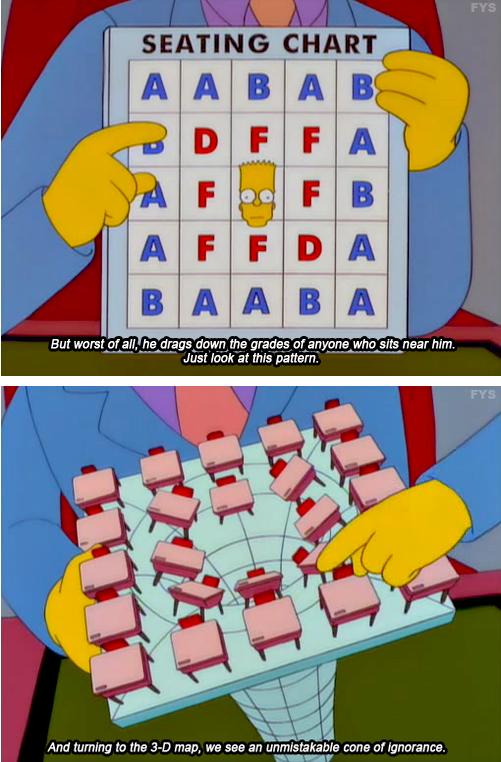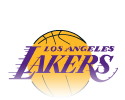Post by Lazy Pete on Jul 2, 2014 21:19:52 GMT -6
DISCLAIMER: The following is a list of impressions of TMBSL from a GM who joined halfway through last season, and has yet to even see a full offseason. This list is incomplete at best and wildly inaccurate at worst. After roughly two weeks in the league, these are the impressions I have gathered.
1. TMBSL is all about the history.

Every player and contract is discussed in the context of previous sims, especially 2.0. Everyone from Magic Johnson to Chalky Studebaker is analyzed and discussed through the prism of how they developed in the last league, and the horrible contracts that they ended up receiving. This will most likely be a disadvantage for a newcomer, because it may be a good predictor of how people will develop in this league. On the other hand, a newcomer will be free to evaluate talent based solely on the present, and avoid having opinions shaded by how many all-star games Tree Rollins made in 2.0. Also, I'm not sure what happened in TMBSL 3.0, but it must've really sucked, because for all of the references to past players or seasons that I've seen, I don't think even one has mentioned 3.0. Did Kermit Washington 3.0 punch Kobe Bryant 3.0 so hard that his face literally exploded? Did Meyer Wolfsheim fix the 3019 playoffs?
2. Players aren’t the only ones who carry historical baggage.

While everyone here (as far as I know) originated from the MainBoard, reputations in Sim League are based almost exclusively on how that GM has done in the past. Certain GMs are treated with a deference and respect (Trofie, Soup, 2Poor come to mind), while others are roasted mercilessly (not really too surprised to see Devine and RW on there). Basically, no one is allowed to escape their reputation. If a GM signs a terrible contract or gets fleeced in a trade, it will be brought up not only throughout the remainder of 4.0, but probably in every future simleague he’s in. Rivalries also seem to emerge, both between teams based on playoff matchups or divisional jockeying and between GMs based on arguments and stupid behavior.
3. The Grading system is some foreign language that is tough to decipher.

B+ B- D C+ B- B. Seasoned TMBSLers can look at that and determine whether that player will suck or not, as well as what position they probably play and what position they should play. A rookie GM looks at that and goes cross-eyed. It seems that they stand as a generic range for a 1-100 type system, where someone with a B in Handling has somewhere between an 87-90, but how While the categories themselves are easy enough to understand (inside scoring, handling, potential, etc.), trying to figure out what categories work best together and how different positions and players should blend together is like trying to crack a safe with bobby pins. It’s doable, but it’s going to take a while, even before you get into the mess of
4. Making trades is a terrifying process.

After signing up, one might find a flurry of messages coming through from GMs welcoming them to the league and offering some words of encouragement or advice. Coming from TMB, this is almost the exact opposite of what would be expected, but it is nonetheless very nice to see. One common thread in all of these welcome offers is a warning to be careful when making trades, and for good reason. Almost immediately after the welcomes end, the trade inquests begin. Experienced GMs, sensing fresh meat in the league, are quick to target whatever talent may be on the newcomer’s team, and it can be overwhelming. Having little knowledge of how to translate the grading system works makes it hard to understand if that center you’ve been offered is going to develop into the next Bill Russell or the next Bill Wennington. Additionally, not knowing the league makes it tough to remember which teams are perennial contenders and which are mediocre/terrible, making it tough to judge the value of future draft picks. And, as mentioned in point #2, bad trades are not forgotten, meaning if the new GM gets absolutely creamed in a trade, he can expect to hear about it for a while. Ultimately, all of this adds up to a lot early apprehension in proposing/negotiating trades.
5. If you aren’t competing for championships, you’re tanking.

In this past season of the NBA, the 76ers caused a lot commotion by fully embracing a strategy to dump talent for assets and embrace losing as a way to build the team from the foundations. Many bloggers and writers have argued that this strategy is the best way to build a team, pointing to the Thunder as an example, while still others argue that blatant tanking does more harm than good, turning off fans and allowing a losing mentality and bad habits to seep into young players. The debate will continue to rage on, and teams will alternately prove and disprove the tanking strategy for years to come
Clearly, TMBSL is nothing like the NBA. If a team is not in the handful of expected title contenders, then they are almost immediately expected to tear it down and tank for a better core. With no fans to worry about and no pressure to win now other than pride, it seems as though tanking is the norm, so much so that tanking in SimLeague is a lot harder than it is in real life. There’s only so many potential superstars available in each year, and the race to the bottom has at least as many contenders as the race to the top. The other ways to build a team, through trades or free agency, may be the more honorable route, but for a newcomer, the ease of tanking and the learning curve it provides for poor talent evaluations makes it by far the most popular strategy.
In closing, TMBSL is both a welcome bastion of fellow hoops junkies and a fiery hellscape fraught with ridicule and embarrassment. I can't wait until I know what I'm doing. Twardzik now, Twardzik tomorrow, and Twardzik forever!

1. TMBSL is all about the history.

Every player and contract is discussed in the context of previous sims, especially 2.0. Everyone from Magic Johnson to Chalky Studebaker is analyzed and discussed through the prism of how they developed in the last league, and the horrible contracts that they ended up receiving. This will most likely be a disadvantage for a newcomer, because it may be a good predictor of how people will develop in this league. On the other hand, a newcomer will be free to evaluate talent based solely on the present, and avoid having opinions shaded by how many all-star games Tree Rollins made in 2.0. Also, I'm not sure what happened in TMBSL 3.0, but it must've really sucked, because for all of the references to past players or seasons that I've seen, I don't think even one has mentioned 3.0. Did Kermit Washington 3.0 punch Kobe Bryant 3.0 so hard that his face literally exploded? Did Meyer Wolfsheim fix the 3019 playoffs?
2. Players aren’t the only ones who carry historical baggage.
While everyone here (as far as I know) originated from the MainBoard, reputations in Sim League are based almost exclusively on how that GM has done in the past. Certain GMs are treated with a deference and respect (Trofie, Soup, 2Poor come to mind), while others are roasted mercilessly (not really too surprised to see Devine and RW on there). Basically, no one is allowed to escape their reputation. If a GM signs a terrible contract or gets fleeced in a trade, it will be brought up not only throughout the remainder of 4.0, but probably in every future simleague he’s in. Rivalries also seem to emerge, both between teams based on playoff matchups or divisional jockeying and between GMs based on arguments and stupid behavior.
3. The Grading system is some foreign language that is tough to decipher.

B+ B- D C+ B- B. Seasoned TMBSLers can look at that and determine whether that player will suck or not, as well as what position they probably play and what position they should play. A rookie GM looks at that and goes cross-eyed. It seems that they stand as a generic range for a 1-100 type system, where someone with a B in Handling has somewhere between an 87-90, but how While the categories themselves are easy enough to understand (inside scoring, handling, potential, etc.), trying to figure out what categories work best together and how different positions and players should blend together is like trying to crack a safe with bobby pins. It’s doable, but it’s going to take a while, even before you get into the mess of
4. Making trades is a terrifying process.

After signing up, one might find a flurry of messages coming through from GMs welcoming them to the league and offering some words of encouragement or advice. Coming from TMB, this is almost the exact opposite of what would be expected, but it is nonetheless very nice to see. One common thread in all of these welcome offers is a warning to be careful when making trades, and for good reason. Almost immediately after the welcomes end, the trade inquests begin. Experienced GMs, sensing fresh meat in the league, are quick to target whatever talent may be on the newcomer’s team, and it can be overwhelming. Having little knowledge of how to translate the grading system works makes it hard to understand if that center you’ve been offered is going to develop into the next Bill Russell or the next Bill Wennington. Additionally, not knowing the league makes it tough to remember which teams are perennial contenders and which are mediocre/terrible, making it tough to judge the value of future draft picks. And, as mentioned in point #2, bad trades are not forgotten, meaning if the new GM gets absolutely creamed in a trade, he can expect to hear about it for a while. Ultimately, all of this adds up to a lot early apprehension in proposing/negotiating trades.
5. If you aren’t competing for championships, you’re tanking.

In this past season of the NBA, the 76ers caused a lot commotion by fully embracing a strategy to dump talent for assets and embrace losing as a way to build the team from the foundations. Many bloggers and writers have argued that this strategy is the best way to build a team, pointing to the Thunder as an example, while still others argue that blatant tanking does more harm than good, turning off fans and allowing a losing mentality and bad habits to seep into young players. The debate will continue to rage on, and teams will alternately prove and disprove the tanking strategy for years to come
Clearly, TMBSL is nothing like the NBA. If a team is not in the handful of expected title contenders, then they are almost immediately expected to tear it down and tank for a better core. With no fans to worry about and no pressure to win now other than pride, it seems as though tanking is the norm, so much so that tanking in SimLeague is a lot harder than it is in real life. There’s only so many potential superstars available in each year, and the race to the bottom has at least as many contenders as the race to the top. The other ways to build a team, through trades or free agency, may be the more honorable route, but for a newcomer, the ease of tanking and the learning curve it provides for poor talent evaluations makes it by far the most popular strategy.
In closing, TMBSL is both a welcome bastion of fellow hoops junkies and a fiery hellscape fraught with ridicule and embarrassment. I can't wait until I know what I'm doing. Twardzik now, Twardzik tomorrow, and Twardzik forever!






















